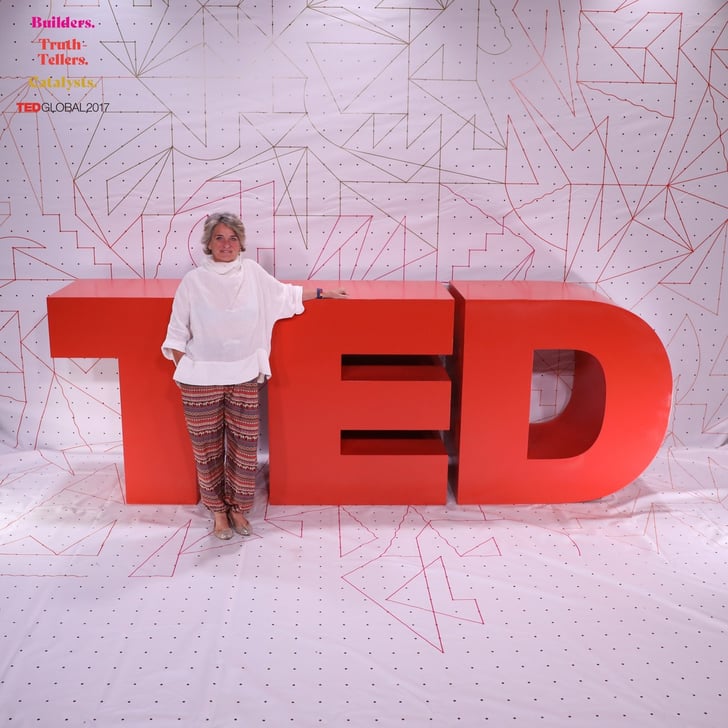
Last week, Americans went to the polls and chose between a lifelong Taker and a lifelong Giver.
Think about it: You knew which was which even though I didn't tell you. This post isn't about politics; it's about a simple, research-based, rubric for understanding people. Like all great coaching tools, it offers clarity and simplicity in place of confusion and suffering.
It also points to a playbook for any new (or veteran) coach who wants a successful career.
You're may be asking, Am I a Giver or a Taker? And what is a Matcher? You know when you're on the receiving end of these behaviors because they govern whether your relationships, networks, and organizations are thriving or toxic. So it matters a lot.
What differences will these distinctions have for your clients and for your career? Read on...
Before I explain these three distinctions, let me give some background. Recently I attended one of Mattison Grey's TED Talk Talks. They're like virtual book clubs but with TED Talks instead of books (Highly recommended and free!) Cool people show up, such as graduates of this school, and Mattison facilitates awesome conversations. If your Zoom connections have been feeling shallow, this is a powerful alternative.
Mattison is one of the best coaches I've ever met by the way, and she is an Otherish Giver. More on that later.
In that recent TTT, we discussed psychologist, Adam Grant's "Are You a Giver or a Taker?"
According to Grant's research on organizations, Takers trigger toxicity, such as paranoia, mistrust, resentment and vindictiveness; while Givers make organizations better. Matchers give about as much as they get so their behavior can be influenced by Givers and Takers. By the way, one Giver can measurably improve an entire organization, but one Taker has two-to-three times the impact, only it's negative.
That ratio, between positive and negative, shows up repeatedly in positive psychology research, and is sometimes called, the Positivity Ratio.
Everyone does some giving, taking, and matching, but which "type" you are represents your default. Do you go through life asking, "What can you do for me?" or "What can I do for you?" or "If you help me, I'll help you."?
According to research, the old myth, "Nice guys finish last," is only sometimes true. It depends on what type of Giver you are. And as more people and organizations learn to spot Takers quickly, the not-so-nice guys are failing faster.
To explain, here are different types of Givers, Matchers, and Takers.
- Selfless Givers: These are the folks who never say, "No." What do they give? Their time, energy, knowledge, money, everything. They are the "nice guys" who finish last because they spend their time on others, making it harder to do their own work. They get drained and tired, become irritable, and eventually burn out. Once depleted, they can't do much for anyone and may even need others to help them. Even Givers may show up unconsciously as Takers when their needs aren't met and it's harder to meet your needs during a pandemic...
- Matchers: These folks are the majority and match favors and other types of giving, tit for tat. If they are surrounded by Givers, they will be inspired to give more, creating a virtuous cycle. If they are dealing with Takers, they give less and less, creating a vicious cycle, and may even become vindictive toward Takers, helping to create an environment of toxicity. That toxicity creates even more depletion for Givers. Matchers amplify giving and taking, which is one reason why Givers and Takers have such powerful impacts on networks and organizations.
- Otherish Givers: These Givers care about others but aren't selfless. I call them Smart Givers or Givers with Boundaries. These are the people who are ultimately most successful because Otherish Givers are attractive and spark virtuous cycles, plus they know when to say, "No." But success doesn't happen overnight because they do spend time and energy helping others. Otherish Givers protect their time and energy because they know how they impact everyone in their organizations and relationships. It's not just about them. When an Otherish Giver identifies a Taker, they may shift to more of a matching style. If they observe the Taker offering crumbs in exchange for their bountiful gifts, or if the Taker habitually transgresses their boundaries, they reduce their help and may even cut the Taker off. This helps create space for the virtuous cycle that boosts everyone else because Givers are free to give more, which inspires Matchers and reduces toxicity. Pro Tip: If you are catnip to Takers, like me, you might want to learn even more about how you attract Takers, how to change that, and of course, how to recognize Takers sooner. Read Grant's Give and Take. Or if you love complexity, read Dr. Ramani Durvasula's, Don't You Know Who I Am?
- Disagreeable Takers: These are often the leaders we have to put up with. They rise quickly to the top, mostly by taking, and people put up with them because they are afraid not to or they simply have no choice. The Givers get worn out and the Matchers become vindictive. Disagreeable Takers also attract other Takers who hope to benefit by association, which amplifies the toxicity. But even Disagreeable Takers show up agreeable some of the time...
- Agreeable Takers: Grant calls these, Fakers. They are the hardest to spot because they are so likeable. Many people assume they are Givers, or at least Matchers, because they are so agreeable. But agreeableness has nothing to do with giving styles. Agreeable Takers will brown nose you, but only when they want something. The rest of the time, they ignore you or criticize you. If you are a people pleaser, like many Selfless Givers, this can be a powerful hook because Agreeable Takers seem to offer the approval you need, but only some of the time. Like B.F. Skinner's Operant Conditioning, they can train you to give more and more. Keith Raniere is an example of how much toxic influence one Agreeable Taker can have on a group of Givers and Matchers. And how far an Agreeable Taker can fall once that group catches on.
U.S. presidents tend to be larger than life so it's easy to identify contrasting giving styles. In exaggerated fashion, our two recent presidents demonstrate Grant's research findings, perfectly. The Taker shot to the top in one leap, winning the ultimate prize in his first-ever election and immediately threw the entire country into toxic convulsions. Four years later, he's the only president in decades to lose his second term because a record-number of Americans, fed up with his constant taking, marched to the polls in Matcher-revenge and voted him out. The Giver, on the other hand, took nearly 50 years to win the presidency, attracted a broad coalition, and has already extended his hand, Giver-style to the other side. While the Taker, in perfect Taker-form, claims he's the real winner and threatens to sue. For some reason, Takers love to sue but they usually lose. They really do finish last in the end.
So how does this show up in coaching?
Well, Disagreeable Takers are unattractive and are rarely successful in coaching. Meanwhile, Matchers and Selfless Givers struggle. The former, because they are unremarkable. The latter, because they burn out before they succeed. Agreeable Takers can succeed for a while but don't last because both coaches and clients dislike Fakers. Finally, Otherish Givers rise to the top more slowly and often stay there. They build sustainable success. Don't worry, it doesn't take 50 years!
In other words, Otherish Givers do best in coaching.
The Founder of the Coaching Profession, an Otherish Giver, taught coaches to "Give for the joy of it" AND "Be incredibly selfish". Now you know why. Thomas Leonard taught the Principles of Attraction and gave them away for free.
Most successful coaches, such as Mattison Grey, do their own version of otherish giving and form strong networks of true fans.
Want to experience Otherish Giving? Here are two opportunities, one from Mattison and the second from me:












